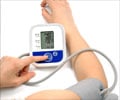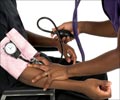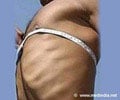FAQ's of Blood Pressure
1. How can high blood pressure be prevented?
Preventive measures include maintaining a healthy diet, regular physical activity, managing stress, avoiding smoking, and limiting alcohol intake (13✔).
2. What are the risks of untreated high blood pressure?
Untreated hypertension can lead to serious health complications, including heart disease, stroke, kidney damage, and vision loss (14✔).
3. What lifestyle changes can help lower blood pressure?
Key lifestyle changes include a balanced diet rich in fruits and vegetables, regular exercise, weight loss, reducing sodium intake, and quitting smoking (15✔).
4. What medications are commonly used to treat high blood pressure?
Common medications include diuretics, ACE inhibitors, calcium channel blockers (e.g., amlodipine), beta-blockers, and angiotensin II receptor blockers (ARBs) (15✔).
5. What is amlodipine, and how does it help with hypertension?
Amlodipine is a type of medication known as a calcium channel blocker. It works by relaxing the blood vessels, which helps to lower blood pressure. By preventing calcium from entering the cells of the heart and blood vessel walls, amlodipine helps to dilate the blood vessels, making it easier for blood to flow and reducing overall blood pressure (15✔).
6. What are beta-blockers, and when are they used for hypertension?
Beta-blockers are a class of medications that reduce blood pressure by blocking the effects of adrenaline on the heart and blood vessels. This decreases heart rate, reduces the force of heart contractions, and lowers blood pressure. They are often prescribed when other treatments are not suitable, or in cases where hypertension is accompanied by other conditions such as heart disease (16✔). .
7. How do ACE inhibitors work to control hypertension?
ACE inhibitors (Angiotensin-Converting Enzyme inhibitors) work by blocking the enzyme that converts angiotensin I into angiotensin II, a substance that narrows blood vessels. By preventing this conversion, ACE inhibitors help to relax blood vessels and lower blood pressure. They are often used to treat hypertension and can also provide benefits in cases of heart failure and kidney issues (17✔).
8. What role does diet play in managing blood pressure?
A diet low in salt, rich in potassium, and based on whole foods can significantly lower blood pressure. The DASH (Dietary Approaches to Stop Hypertension) diet is often recommended (18✔).
9. How much salt can I have to help my blood pressure to be under control?
Excess salt in the diet can cause an increase in blood pressure, To keep blood pressure under control restrict your salt or sodium intake to 2.4 grams/day (19✔).
10. How does stress affect blood pressure?
Chronic stress can contribute to high blood pressure. Stress management techniques such as meditation, deep breathing, and yoga can help lower stress levels and blood pressure (20✔).
11. What is the connection between sleep and blood pressure?
Poor sleep quality and sleep disorders like sleep apnea can increase the risk of developing hypertension. Ensuring good sleep hygiene is important for blood pressure management (21✔).
12. How often should blood pressure be checked?
Adults should have their blood pressure checked at least once every year if it is within the normal range, and more frequently if they have hypertension or are at risk (22✔).
13. Can high blood pressure be cured?
While hypertension cannot be cured, it can be effectively managed with lifestyle changes and medication. Continuous management is crucial to prevent complications (23✔) .
14. What is resistant hypertension?
Resistant hypertension is a condition where blood pressure remains high despite the use of three or more antihypertensive medications, including a diuretic. It may require specialized treatment and lifestyle changes (24✔).
15. What is white coat hypertension and how is it managed?
White coat hypertension occurs when a patient's blood pressure is elevated in a medical setting but normal at home. It can be managed by monitoring blood pressure at home and using ambulatory blood pressure monitoring to get accurate readings (25✔).
16. What is Mean Arterial Pressure (MAP)?
Mean Arterial Pressure (MAP) is the average arterial pressure throughout one cardiac cycle, systole, and diastole. MAP is influenced by cardiac output and systemic vascular resistance, each of which is influenced by several variables (26✔).
17. How Can Blood Pressure Analysis Help You?
Blood Pressure Analysis involves evaluating your blood pressure readings to understand your cardiovascular health. Using tools like a blood pressure calculator by weight or a blood pressure calculator app, you can track changes over time, assess your risk for hypertension or hypotension, and make informed decisions about lifestyle changes or treatments (27✔).




















My blood pressure has been between 190 and 210 /80 for a couple of months what should i do ?